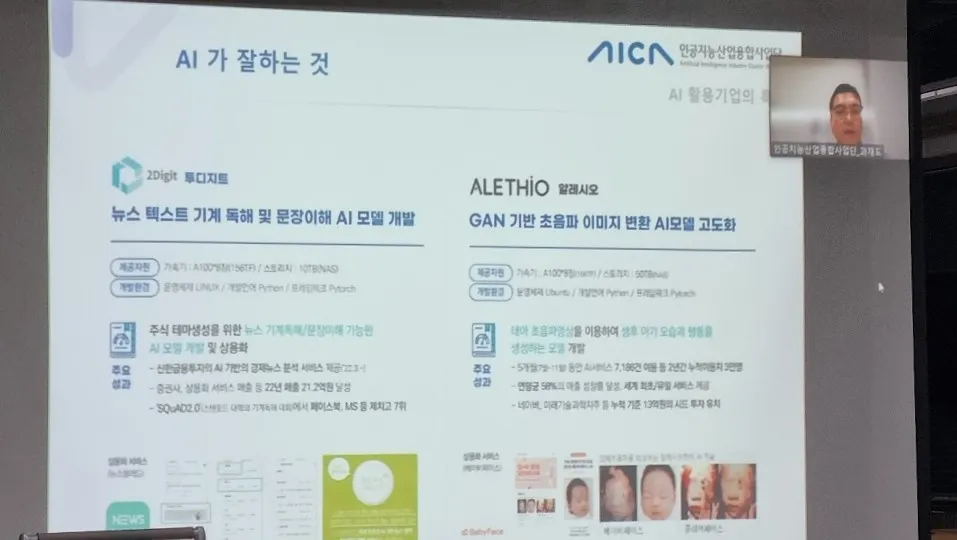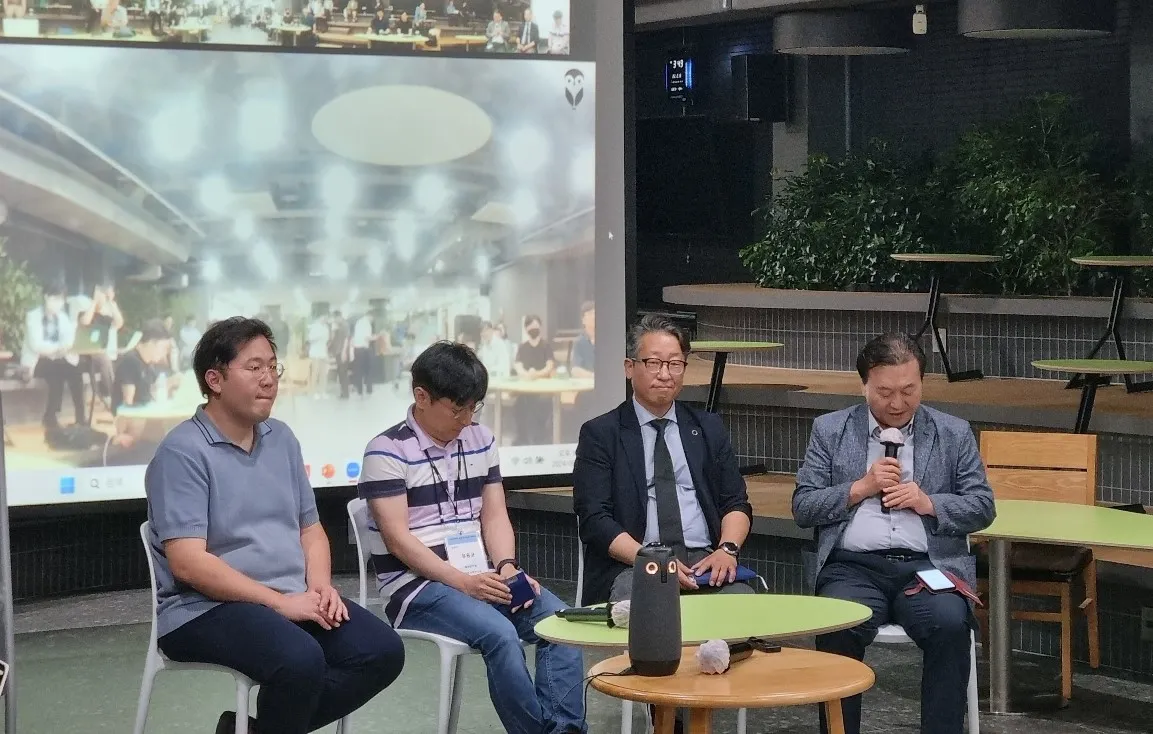On the 20th, Kwak Jae-Do, Director of the Dorong Venture Forum, Stresses the Need for Different Support Policies for AI Companies
“Support methods and policies for artificial intelligence (AI) companies should be completely different from those for traditional information and communication technology (ICT) companies.”
Kwak Jae-Do, Director of the AI Industry Convergence Business Unit (AI Business Unit), emphasized this point during his online presentation at the Dorong Venture Forum held on the 20th at KAIST Startup Center. He pointed out that the business structures and resource deployment strategies of AI companies are fundamentally different from those of traditional software companies. He stressed the importance of considering these differences when formulating support methods and policies for AI companies.
Kwak Jae-Do, Director of the AI Industry Convergence Business Unit (AI Business Unit), explained, “Traditional software development centers around source code as the core of the content, and 70-80% of the budget is spent on maintenance even after development is completed. In contrast, AI companies spend over 90% of their costs on data collection and AI model training.” This approach differs fundamentally from the methodologies established over the past 40 years in software engineering.
He emphasized that with the advancement of deep learning technologies, the performance of AI models is heavily dependent on the quality of the data, making it difficult for developers to directly control this process. “Even after spending significant amounts on training, it is challenging to predict the results accurately,” Kwak said. “This is a new challenge that traditional development methods are not equipped to handle.”
To effectively support AI companies, Kwak proposed several key strategies, including securing high-quality validated data, supplying experienced AI talent, conducting proof-of-concept projects to establish references, and fostering collaborative ecosystems with companies across various fields.
He particularly stressed the importance of collaboration models between AI solution providers and industry domain experts. “By collaborating, AI technology companies and domain-specific companies with abundant data can maximize the effectiveness of AI applications,” he predicted.
The AI Business Unit, to which Kwak belongs, has been accelerating support for the domestic AI industry since the launch of the AI Data Center last October. According to Kwak, around 700 companies nationwide are currently utilizing the center's high-performance computing resources and data solutions. In addition, active support initiatives are underway, including the establishment of AI testing and validation environments and the training of AI specialists.
4o mini
During the subsequent panel discussion, experts shared an overall positive outlook for the future of AI startups. However, they emphasized that as competition surrounding AI technology intensifies, developing a differentiated business model has become crucial.
The panel discussion was moderated by Yoon Sang-kyung, CEO of ETRI Holdings, and included Nausik, CEO of TalentSeeker, Yoo Yong-gyun, CEO of AI Friends, and Park Dae-hee, CEO of Daechangjo Innovation Center.
woosik NA, CEO of TalentSeeker, emphasized that in order for early-stage AI startups to secure data and establish their own competitive edge, collaboration with large enterprises is essential. He advised, “AI startups must leverage the data and capital of large corporations to advance AI models and, based on this, develop differentiated services.”
A key challenge is how AI technology can be used to provide new value to customers. Yoo Yong-gyun, CEO of AI Friends, highlighted, “Rather than focusing solely on the AI technology itself, the focus should be on developing a business model that utilizes this technology. It is also crucial to foster close collaboration between academia and industry to apply AI technology to real-world industries.”
Park Dae-hee, CEO of Daechangjo Innovation Center, emphasized that AI startups must conduct a thorough analysis of the AI technology value chain and supply chain to take the next step. He pointed out that even the best technology has little meaning if it doesn’t lead to commercialization. Park stated, “The priority should be finding the answer to how AI technology can be used to generate profit.”
The Dorong Venture Forum that day also featured a special session on 'AX (AI Transformation),' which included technology development introductions using AI (IR), feedback from investors, the opening of the Startup KAIST Global Studio, and a preview of the 2024 Startup Korea Investment Week plans.



